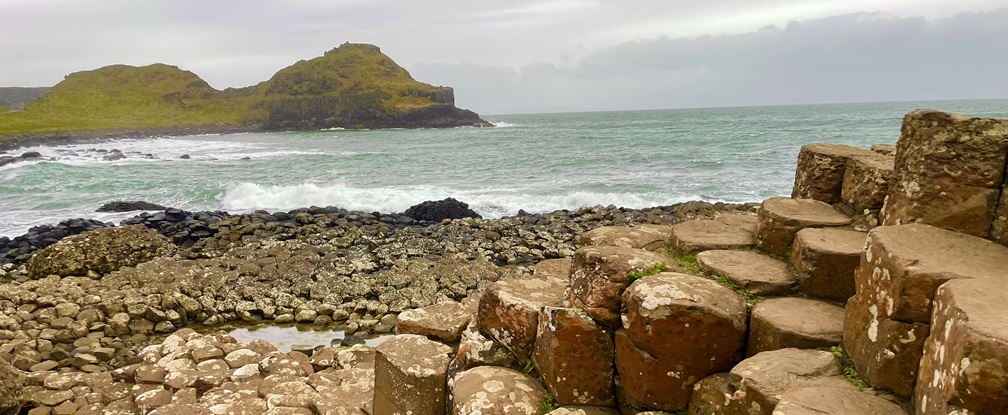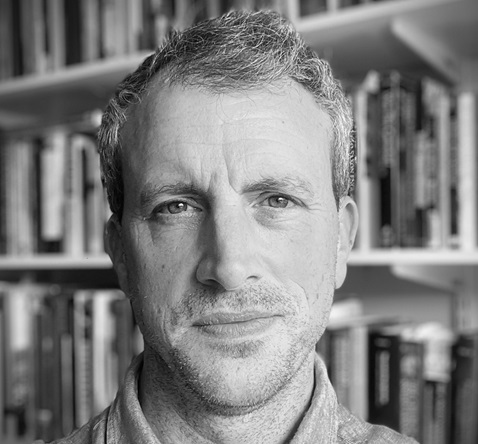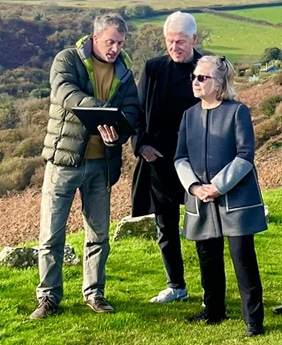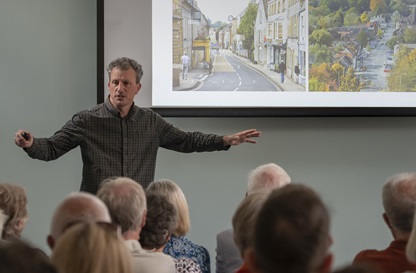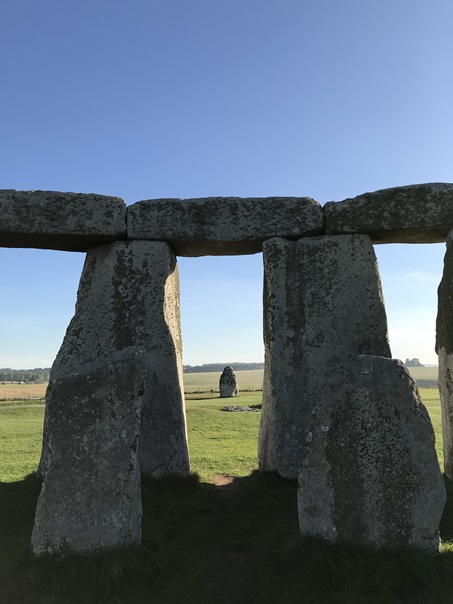-
FY-018
History, Memory and the Creation of Identity
In most human societies, history and memory are important in the creation of identity. For example, consider how recent political debates often involve debates about the relevance of particular strands of history (such as `empire¿) to modern society. This module explores these relationships from the ancient societies of Egypt, Greece, and Rome to the modern world. It is designed to provide Foundation Year students intending to pursue degrees in Classical Studies, Ancient History, Ancient History & Egyptology, American Studies, Medieval Studies, or History with an opportunity to reflect critically on what the past means and how we go about studying it.
-
HHC100
Fieldtrip: The Past in its Place
People understand the past and its significance through a range of mediums, including historic documents, objects, artefacts, buildings, structures and monuments. This module will give the students a comprehensive introduction to how we professionally approach and engage with historic visitor attractions. Incorporating some of the major visitor attractions and museums of South Wales, a range of themes and periods will be addressed. Students will be encouraged to explore digital resources in the exploration of each site, will engage in an innovative portfolio of assignments, and will be encouraged to think critically about how the past is presented in site-specific contexts. Creative responses to the module brief will be encouraged. This module is designed around active, participatory, and experiential learning. It designed to have a strong social element where students will be interacting for longer periods (beyond the traditional seminar allocation) and, as such, developing key social and networking skills. Digital proficiency around the use of on-line digital data resources, applications for reprographic presentation and creative responses to the assignments will form part of the skills and employability remit.
-
HHC200
The Past in the Present: Exploring Heritage Practice and Debates
This module will give students an introduction to the heritage industry. It¿s suited both to those considering a career in this sector and to students who¿d like to think in more general terms about the way our society consumes the past. The module will combine critical analysis of a range of heritage sites with lectures and seminar discussion of the lively debates around the role of history and heritage in society. We¿ll explore the challenges of difficult histories ¿ such as the legacies of slavery and colonialism. We¿ll consider both tangible heritage, like physical buildings and landscapes, and intangible heritage, like language and culture. The module will be assessed by a coursework portfolio of site reviews and an extended essay.
-
HI-M01
Historical Methods and Approaches
This module introduces you to a diverse range of methodological approaches that underpin the discipline of history at an advanced level. You will explore how historians construct knowledge about the past, examining key debates around evidence, interpretation, narrative, and the politics of history-writing. You will engage critically with a variety of methods, including archival research, oral history, microhistory, cultural and social history, postcolonial and decolonial approaches, gender analysis, and digital history.
Through seminar discussions and a series of mini projects, you will develop a sophisticated understanding of the strengths, limitations, and ethical implications of different historical methodologies. The module also supports the development of research design skills in preparation for independent dissertation work.
Finally, the module will encourage you to think reflexively about your own role as researchers and to consider how methodological choices shape historical narratives and their relevance to contemporary global challenges.
-
HIH117
Medieval Europe: An Introduction
The module is a basic introduction to the history of Europe c600-c1450, a period usually described as 'Medieval'. It outlines the political and economic structures of the period, and examines the medieval 'world view' by discussing attitudes to life, death and the afterlife. Its first theme, expansion, charts the growth of Europe as a major world power and includes topics such as the crusades against the Muslims and pagans, political and economic growth, and intellectual development in the foundation of the universities. Its second theme, crisis, focuses on the devastating impact of plague, famine and warfare, and the increasing persecution of heretics, lepers, homosexuals, and Jews.
-
HIH122
Making History
How do historians study the past? Why do their accounts of the past differ, and why do they change over time? This module will help you to understand the various concepts, methods, and approaches that academic historians use when writing history and generating historical explanations. By the end of it, you will understand how and why professional historians disagree on many topics, and you will be equipped to evaluate competing interpretations of the same past events and processes.
The module also trains you in the fundamental skills required to study history as an undergraduate, and gives you an opportunity to learn more about the interests and expertise of the history staff you¿ll be working with at Swansea. It will help you make the transition from being taught history at school or college to studying history at university, and it will introduce you to the many different kinds of history you can explore in the course of your degree.
-
HIH237
The Practice of History
The purpose of the module is to encourage you to think more deeply about how historians work and, in particular, about how we as historians can locate and use primary historical sources effectively as a means of interpreting and understanding the past. During the module we will learn about the survival of historical evidence, how it is organised and made accessible to historians to undertake their research, and how to effectively locate and interpret it in your studies. We will consider how the process of doing historical research changes over time, in particular with the impact of recent developments like digitization.
At the core of the module will be the work you undertake with others in your seminar group using a range of primary sources which your seminar tutor will introduce to you. As part of the module assessment you will also undertake your own primary source based research project using items from these collections. The module is designed strengthen your analytical skills and to help prepare you for the more extensive uses of primary evidence which you will encounter in final year special subjects and dissertation.
-
HIH276
Britain in the Early Middle Ages: Slavery, Dragons, Queens and Vikings
This course provides an overview of the history and archaeology of Britain between 400 and 1100 AD. Taught through a series of thematic case-studies, it is designed to cover issues of constructed ethnicity, migration, slavery, gender, memory and myth. No previous knowledge of the period is required, and students will be encouraged and supported to engage with a fascinating range of source materials. In a chronological sweep through 700 years of British history, the course covers the age of migration, pagan belief systems, the origins of kingdoms, the conversion to Christianity and the impacts of the Viking Age.
-
HIH3300
History Dissertation
The History dissertation is a free-standing, 40-credit module that runs across both semesters of Level Three. Candidates conduct research upon a subject of their choice, devised in consultation with a member of staff teaching for the degrees in History, and concerning a topic that falls within staff research and teaching interests.
-
HIH3357
The Placing of History: Digitally Mapping the Historic Past
Whether you are interested in medieval, modern or early modern history, this module will allow you to learn an extremely useful set of transferable skills and will boost your employability. Taught almost exclusively on-line, `The Placing of History¿ will guide you through the introductory basics of using Geographic Information Systems in order for you to digitally map an aspect of your chosen period of history. You¿ll be given step-by-step guidance on how to use industry standard software and will be given the opportunity to define your end of module project focusing on an area of your own interest or specialism (You may chose an aspect that aligns with your dissertation research). More so than ever before, geo-spatial (location) data is being used to manage and understand the modern world and the historic past. This module gives you the chance to overlap your areas of historic interest with the learning of a key set of industry-relevant skills.
-
HIHM01
Approaches and Debates in Heritage and Public History
This module offers an introduction to current debates in heritage and public history and a chance to develop practical skills in the communication of history to broad audiences. It will provide an opportunity to reflect on the relationship between academic study and the past as portrayed by, with and for the public (or publics). You will explore case-studies in heritage from around the world. Why have museum presentations of history proved so controversial? What is the role of heritage in national and community-building? There will be opportunities to try out a variety of practical techniques in historical communication, and to reflect on their strengths and weaknesses. You will familiarise themselves with current policy contexts for heritage and public history, and will acquire valuable skills for careers in the heritage sector and beyond.
-
HIMD00
Medieval Studies Dissertation
The Medieval Studies dissertation gives you the opportunity to pursue a substantial research project in a subject of your own choosing. Under the supervision of a specialist in the field, and using the materials you created in the Research Folder module, you will develop advanced research skills and expert subject knowledge. The module encourages independent study while supporting you in constructing coherent and persuasive arguments, communicating complex ideas effectively, and engaging critically with medieval scholarship. Completing this dissertation will not only deepen your knowledge of medieval history but also prepare you for postgraduate research or professional applications.
-
HIMM01
Introduction to Advanced Medieval Studies 1: Themes, Approaches and Sources
This module introduces you to current themes, approaches and sources in medieval studies, that is, the interdisciplinary study of medieval history and literature. It begins to develop the skills required to conduct MA-level study. Lectures outline general concepts, approaches and key sources with respect to essential themes in medieval studies, such as genre and gender.
Workshops are built around interacting collaboratively with students to develop the necessary skills to implement the approaches discussed within and beyond the module¿s focus themes. Special attention will be given to the discipline¿s increasing interest in historically underrepresented groups and the emergent concept of the `global Middle Ages¿.
-
HIMM04
Introduction to Advanced Medieval Studies 2: Themes, Approaches and Sources
This module builds on HIMM01 (Introduction to Advanced Medieval Studies I) to deepen your understanding of key themes, sources, and research approaches in the interdisciplinary study of the Middle Ages, in order to develop the research skills required to conduct MA-level research. Lectures and seminars refine your general concepts, approaches and key sources with respect to essential themes in medieval studies, such as identity and spirituality. Following on from HIMM01, this module progressively shifts its thematic focus in a more strongly methodological direction, considering themes such as quantitative methods and archaeology in medieval studies. It also familiarises you with the medieval heritage of South Wales and the surrounding region.

